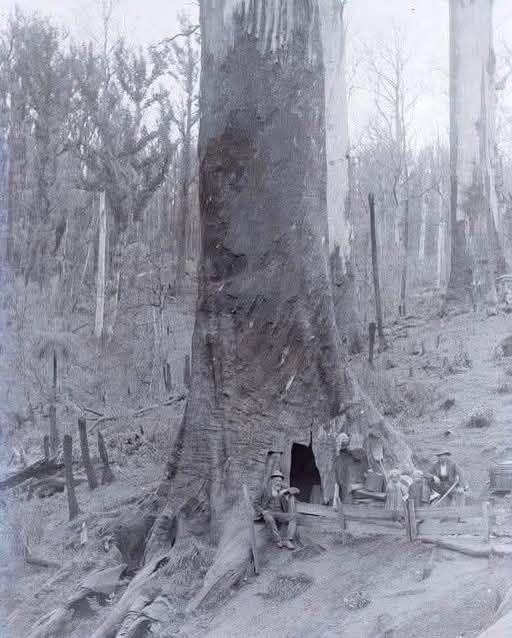In the 1870s, Northern California was still very much a land of rugged frontiers and untamed landscapes. Settlers fought harsh winters, wild terrain, and the constant demand to carve out survival from the earth. For most families, life was dictated by farming cycles, church gatherings, and long days of backbreaking work. It was a time when conformity wasn’t just encouraged—it was expected.
Yet in the midst of this, one family broke free from tradition in a way that shocked their neighbors. Their story became part of local legend, not because of scandal or crime, but because of the deliberate choice they made to live differently.
The Family That Chose Silence
This Northern California family decided that speaking to one another was unnecessary. They communicated entirely without words—relying instead on gestures, expressions, and a deep, almost uncanny understanding of each other’s thoughts.

At first, neighbors believed it was some sort of strange joke. But weeks turned into months, and months into years. The family maintained their vow of silence within the household, only breaking it when absolutely required for business or trade. What began as a curious quirk soon became a lifestyle that defined them.
A Town Divided
The community didn’t know what to make of it. For some, the family’s silence was unsettling, even offensive. In an era where church sermons, town hall debates, and lively dinners were the heartbeat of social life, the absence of words felt like a rejection of everything familiar.
Others, however, were fascinated. They marveled at how the family could tend to their farm, raise children, and live side by side without the constant chatter that most households considered essential. Their silence began to feel less like strangeness and more like a quiet strength—a way of life that demanded discipline few could imagine.
Living Beyond Words
Over time, the family became something of a mystery. Travelers passing through heard stories of “the silent family of California,” and some made the trip just to see them with their own eyes. Children whispered rumors about them around campfires. Adults speculated whether the silence brought peace—or whether it hid something darker.
But those who interacted with the family more closely often described them differently. They weren’t hostile, nor withdrawn. Instead, they carried an aura of calm that seemed rare in such a difficult era. When words were used sparingly, every look, every movement, and every shared task carried weight.
The Legacy They Left Behind
Though time has buried many details of their lives, their story still lingers in local history as a reminder that even in the 19th century, people could choose to step outside of society’s expectations. Whether their silence was an experiment, a spiritual practice, or a practical decision lost to time, it continues to spark questions today.
Would such a choice be seen as eccentricity in our modern world—or would it be admired as a form of simplicity and focus?
One thing remains certain: while countless families lived and died in obscurity during those years, this family is remembered not because they followed the rules, but because they quietly broke them.